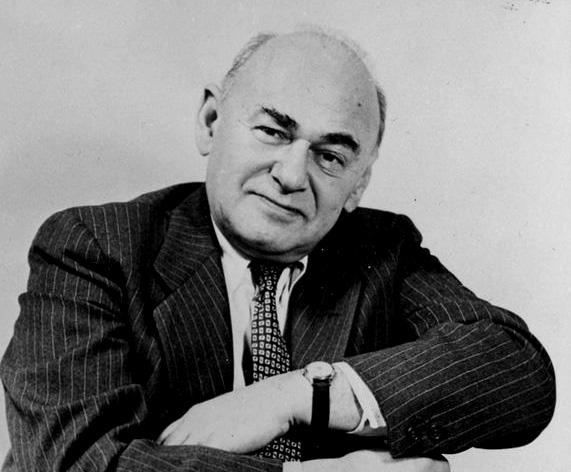 The NYPR Archive Collections
The NYPR Archive Collections
[Do novelists present a true picture of the times in which they live]

This episode is from the WNYC archives. It may contain language which is no longer politically or socially appropriate.
Prefaces his talk explaining that he had been criticized for something he said but was later supported by an unexpected source. This puts him "in a good frame of mind." On a previous broadcast, the subject he was discussing was the portrayal of women in literature. One critic, "a foreigner," questioned if our novelists were giving an honest account of what life is really like, particularly with regard to our women. Said that either our women were neurotic or our writers were. The point Seldes made is that there is no reason to believe that novelists are trying to realistically depict what life is like. Fiction writers are in pursuit of something different. Draws a parallel to the Victorian novelists and he doubts that they were depicting what society was like. Talks about the book "The Girl With The Swansdown Seat" by Cyril Pearl. Largely a study of the kept women, upper middle class harlots, who thrived in English society during Queen Victoria's rule. The proper women were not only aware of these women, they would observe their clothes and try to copy them. A whole section of London was home to these women. Where do we get the idea that the whole Victorian civilization was prudish and repressed? Pearl exposes Victorian virtue as a myth. Mudie's lending library would not allow books of questionable morality. This had a real affect on society.
Talks about Harold Nicolson's book "Good Behavior." It is a study of certain types of civility, not a guide to manners. Seldes discusses some points of interest. Intellectuals vs. the those skilled in sports. Mentions his own lack of interest in sports, brought up to read and study, and perhaps over-values intellectual pursuits. Nicolson draws some consequences: this renders English intellectuals unassuming - provides a state with a supply of apprentices who lack imagination and are therefore obedient. The athlete after a few years of glory has to endure an unhappy middle age. Olympic champions should pick up reading habit at an early age. Ranges from many countries and centuries but there is no mention of manners and civility in U.S. - Nicolson has good reason. American adults seem to be inhibited by conventions. Nicolson doesn't understand the position of privilege and power accorded to American women. There is also a disregard of personal privacy. Privacy denotes something exclusive, patronizing, unfolksy and meriting suspicion. Americans will converse amicably with strangers about private things. Stereotypes of the English and of Americans. The Americans shown in the movies is how other countries know us. Blockbusters - long, technicolor, widescreen, panaramic, many are historical. Can't be shown on television. Breaking down the television viewing habit. The advantage to the public is we now have another kind of entertainment. So long as different kinds of entertainment exist, we always have a chance that something new and different will come out. Mentions briefly the new dictionary of American synonyms.
Audio courtesy of the NYC Municipal Archives WNYC Collection
WNYC archives id: 70527
Municipal archives id: LT7526